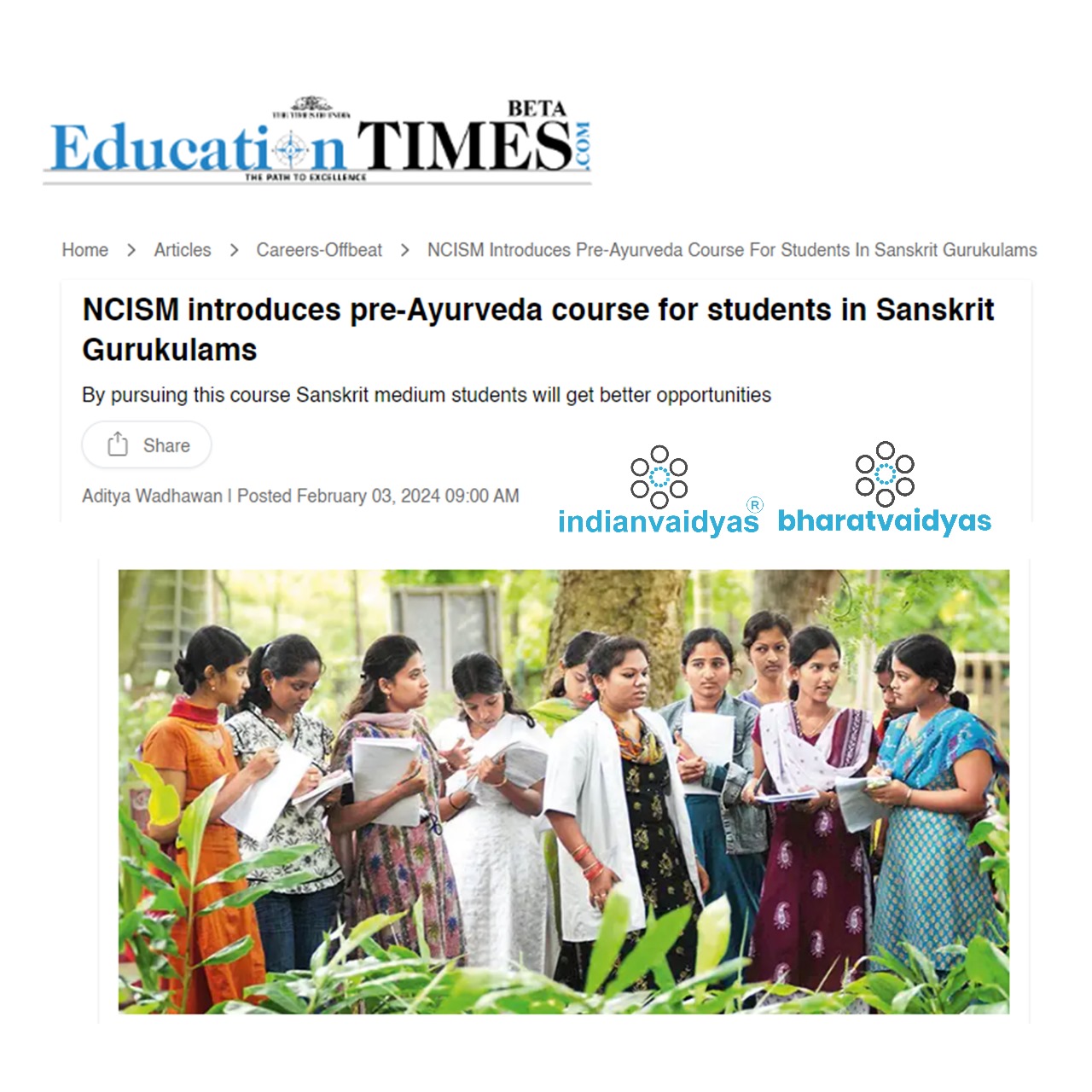NCISM introduces pre-Ayurveda course for students in Sanskrit Gurukulams
05-Feb-24 04:57:44

By pursuing this course Sanskrit medium students will get better opportunities
The National Commission for Indian Systems of Medicine (NCISM) under the Ministry of Ayush plans to introduce a 7-years programme for students studying in Sanskrit gurukulams after class X to study pre-Ayurveda. These courses will be taught in Gurukulam which will soon be set up across the country which will require the affiliation of NCISM. The new regulations will help students from Sanskrit Gurukulams affiliated to State Sanskrit Boards. There are eight Sanskrit boards that fall under the ambit of Council of Boards of School Education (COBSE). According to regulations published in the official gazette of NCISM, there are about eight Sanskrit boards in the country which are Rashtriya Sanskrit Sansthan, Maharishi Patanjali Sanskrit Sansthan, Chhattisgarh Sanskrit Board, Bihar Sanskrit Shiksha Board, UP Board of Secondary Sanskrit Education Sanskrit Bhawan, Assam Sanskrit Board, Indian Council for Hindi and Sanskrit Education and Uttarakhand Sanskrit Shiksha Parishad. These boards will be benefitted by this decision as the students studying in gurukulams will get a head start.
NCISM also regulates pre-Tib courses which have been functional for the Urdu medium students, who enrol in the Bachelors of Unani Medicine and Surgery (BUMS) courses. Students from Urdu-medium schools and madarsas generally enrol in pre-tib courses. The total duration of these pre-Ayurveda courses will be seven and a half years. The initial two years of pre-Ayurveda courses will strengthen the academic base of students and prepare them to pursue Bachelors of Ayurvedic Medicine and Surgery (BAMS). This course is of four years duration with one and a half year dedicated to internship. Students will get to intern in the ayurveda hospitals that will be setup under the gurukulams.
“Students will need to appear in a separate NEET entrance exam whose pattern will be finalised by an expert committee set by NCISM. These courses which will be taught in Gurukulam institutions in a residential mode. For setting up these Gurukulam institutions, the affiliation of NCISM will be mandatory,” says Jayant Deopujari, chairman, NCISM, Delhi.
“The decision to allow students to enrol in pre-Ayurveda course after passing class X has been taken under section 14 of the NCISM Act. This is essential for the students studying in Sanskrit Gurukulams under the state Sanskrit board who face difficulties in getting themselves enrolled in the BAMS courses,” adds Deopujari.
“Students from Sanskrit medium schools often do not have a strong foundation in Physics, Chemistry, and Biology, due to which they do not acquire knowledge to pass the NEET exam. “The pre-Ayurveda courses after class X, will give an overview on the basic science subjects. The students will be extensively taught PCM along with English which in turn would strengthen their academic base,” further adds Deopujari.
NCISM warns that these courses will not serve as a backdoor entry for getting admission to the BAMS course without clearing the NEET UG exam. “We have made it mandatory that the setting up of Gurukulam institution will depend upon the population of the state. For instance, only one Gurukulam institution will be setup in a state which has a population of about 5 crore. On the other hand, three Gurukulam institutions can be set up in a state that has a population of 12 crore,” adds Deopujari.
Sanjeev Sharma, vice-chancellor, National Institute of Ayurveda, Jaipur, says, "This initiative will help the students who have studied in Sanskrit medium. In most cases, they are unable to pass the NEET UG. Their knowledge of subjects like Physics, Chemistry and Biology remains limited.”
SOURCE & CREDIT: EDUCATION TIMES